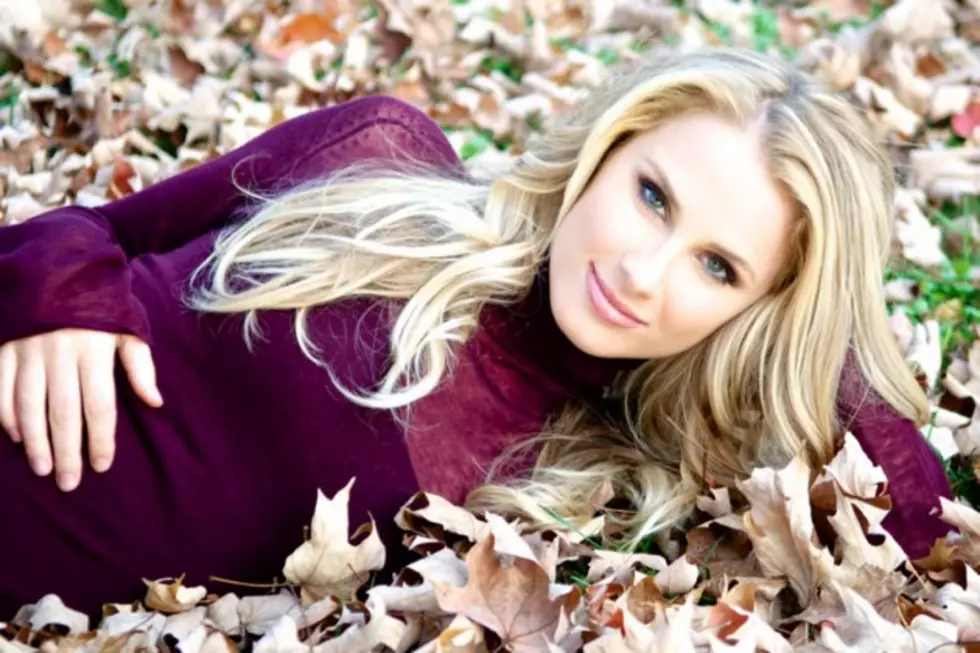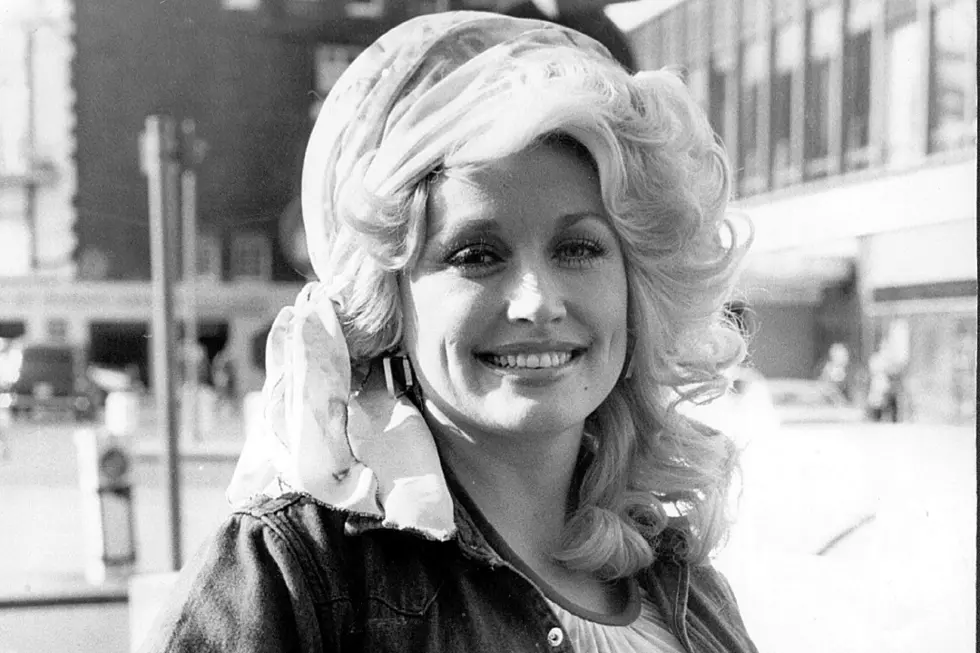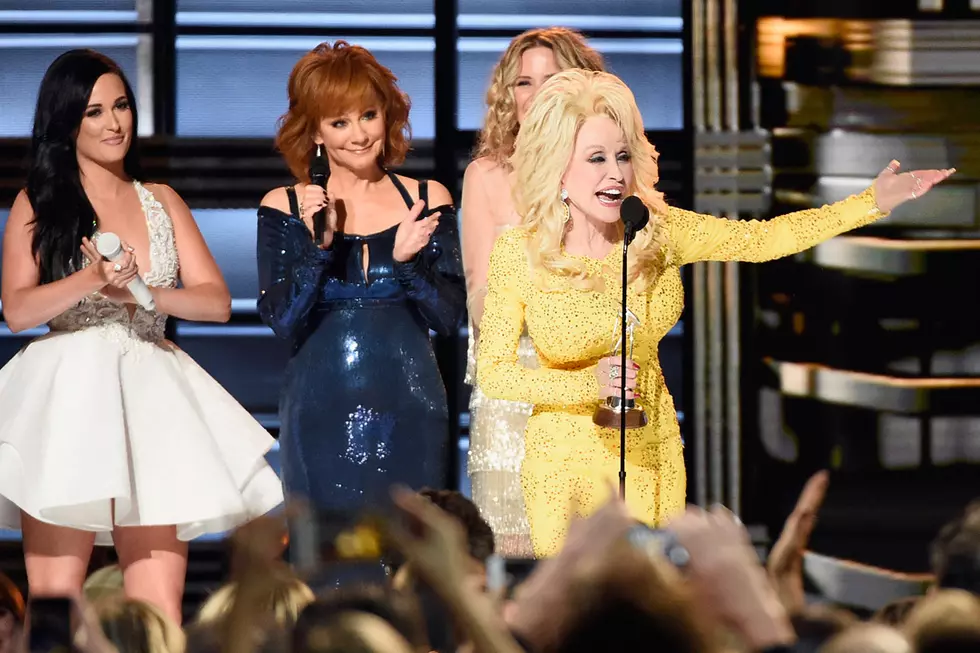
#LetTheGirlsPlay: Sara Haze Is Country’s Next ‘Single’ Girl
It was "ugly crying." Not tearing up, getting misty, needing a moment or even weeping — ugly crying. Sara Haze is proud of her tears, and she should be. October's #LetTheGirlsPlay artist recently watched a dream come true.
“It was so embarrassing … I just really couldn’t hold it in," the Orange County-raised singer-songwriter tells Taste of Country with a big smile on her face. “I’ve heard other cuts before and I haven’t had that reaction, but for some reason … I think because it’s Carrie.”
On October 23, Haze's song "Relapse" will be included on Carrie Underwood's Storyteller album. It's track No. 9, and it's mid-tempo, and after that she isn't saying much because she'd rather be unnecessarily cautious with the details than learn she'd said too much and the country superstar is upset. There's whispers that the song is a favorite of Underwood's, which has Haze's team hoping it could become a ... ah, we won't jinx it.
Life is weird enough when you’re a teenager and you’re still trying to figure out who you are anyways. And then you have these suits telling you you need to lose 15 pounds.
As she talks, her version of "Riot" begins to play over the speakers that point out toward a roadside patio at the Listening Room in Nashville. It's dark, and a light drizzle is threatening to turn into much more, but she's happily agreed to sit close beneath a small awning for the better part of an hour. Her smile is so bright it makes her hair looks dark. There's a lot for Sara Haze to be smiling about. She notices her song immediately and sits up straight, beaming.
Like so many women featured in this series, Haze is unsigned as an artist, but making waves as a songwriter. She'd love for that to change, and embraces the modern challenges that come with being a woman in country music. The Nashville scene is more competitive than the music scene in Los Angeles, she says.
“If you’re a signed songwriter, you’ve basically made it to the NFL of songwriting. There’s more NFL players than there are professional songwriters," she shares.
Early success as a singer floated her hopes for years. Before she even began high school she had songs placed in daytime television shows like One Life to Live and As the World Turns. Writers kept calling her to record demos. Music supervisors urged her to learn how to write. Haze's mother is a singer with some songwriting talent, so she had someone to turn to during those first nervous months and years with a pen and paper and a creative mind that's turning out more questions than verses. "Sparkle" was the first song she wrote. It's not available online, on purpose.
“I just know that it was terrible,” Haze says, laughing. “You put the sparkle in me, in my eyes or something. It was very cheesy.”
In high school her songs landed on shows like The Hills and The Simple Life, a reality TV show starring Paris Hilton and Nicole Richie. Haze was aiming to be a pop artist at the time, but record labels weren't knocking on her door. This didn't concern her. In fact, the L.A. music scene almost convinced her to give up all together. A song called "Lovely" talks about it. Haze tells ToC she was just a girl singing songs around Hermosa Beach, but executives insisted on telling her to write about this, wear that, represent this.
“Life is weird enough when you’re a teenager and you’re still trying to figure out who you are anyways. And then you have these suits telling you you need to lose 15 pounds.”
Welcome to Nashville
"Lovely" would make a good country song, if for no other reason than the piano-driven ballad has touched over a million people. One girl told Haze it "literally saved her life." She's heard other stories of the song being used by therapy groups.
Some early co-writes with James Slater helped pave a bumpy road to Music City. “When I moved to town, I had no idea of what I was doing,” she admits, laughing again. “I think I thought, honestly when I moved to town that I just needed to get it out of my system. That I was gonna come, I was gonna be here for a year, fall on my face and move back home.”
She found something that was missing in Los Angeles, something that explains why America's second largest city has produced so few country artists. Haze found a community. She found people who cheer her on and selflessly steer her toward opportunities.
The year passed and Haze stayed. Cuts she wrote for Kelleigh Bannen ("Famous") and Rascal Flatts ("Riot") became singles. Later this year or early next, three songs she wrote will be released on albums from the Band Perry and Randy Houser. Last November she watched as her hero sang a song she wrote during the CMA Awards in Nashville. When Christina Aguilera took the stage with Rascal Flatts, her worlds collided in the best way possible.
There were a lot of congratulatory phone calls and texts during and after a four-minute performance she watched from a friend's vacation home on the beach in Florida. But there weren't ugly tears.
Proud Tomato
There are some things you should know about Haze that help fill in missing colors on her portrait: She wore a Batman cape for three straight years, between age three and six. She grew up listening to pop music (for years, L.A. had no country radio station), but Shania Twain introduced her to Flatts and Keith Urban, and then artists like Miranda Lambert and Underwood. She once wore a Tomato T-shirt on stage at the Grand Ole Opry (she plays almost monthly), just to make sure tourists knew of the bubbling #SaladGate controversy started by radio consultant Keith Hill.
Haze is mostly smiles, but her absolute favorite kind of song to write and perform is a man-hating song. She'll put up to four in an hour-long set, she says.
“There’s just something so fun about being sassy and taking on a character that’s been done wrong and is ready to burn a house down, like ‘Fire With Fire.’”
“Females love man-hater songs," she furthers.
The competition makes it fun, Haze says, referring to the competition amongst artists (regardless of gender) for a precious few spots on record label rosters. “I just always think about young girls now," she explains. "Do they have those female artists that are going to inspire them, that are going to make that fire in their hearts burn for music? I hope they do.”
The shortage of women in country music issue isn't totally new. When Haze wore the Tomato T-shirt last spring, Opry veteran Jeannie Seely loved it. The "Don't Touch Me" singer knew all about the controversy, and shared her own story of knocking down walls in Nashville. Once upon a time Seely lobbied to become the first regular host of a Grand Ole Opry segment, only to be told it was tradition for a male to do it.
"And she said," Haze begins, winding up for a great punchline, "‘That’s funny, tradition smells a lot like discrimination.'"
More From Taste of Country








![Morgan Wade Yearns to Break Free in Stellar New Track ‘Run’ [LISTEN]](http://townsquare.media/site/623/files/2022/01/attachment-morgan-wade-run1.jpg?w=980&q=75)
